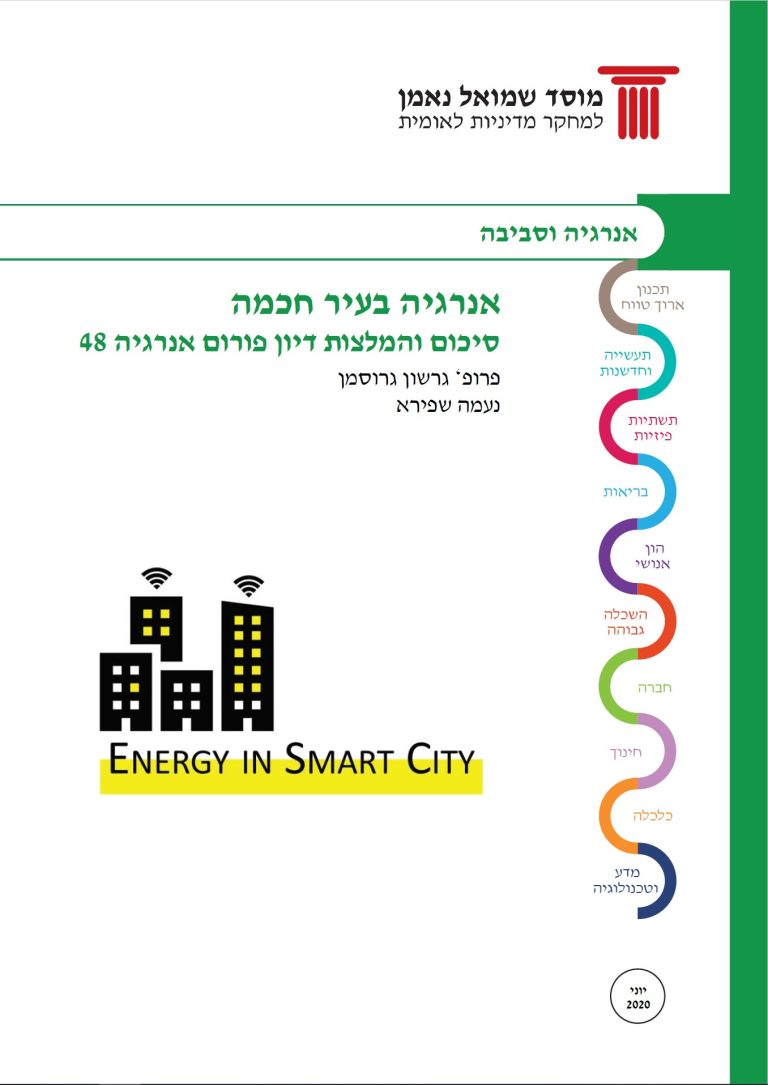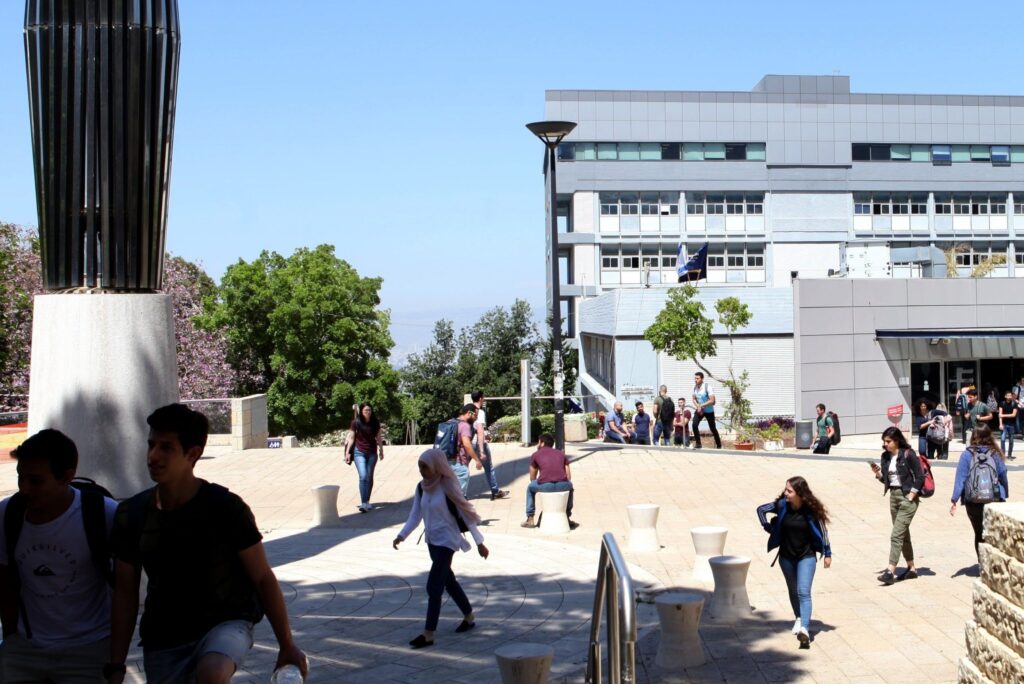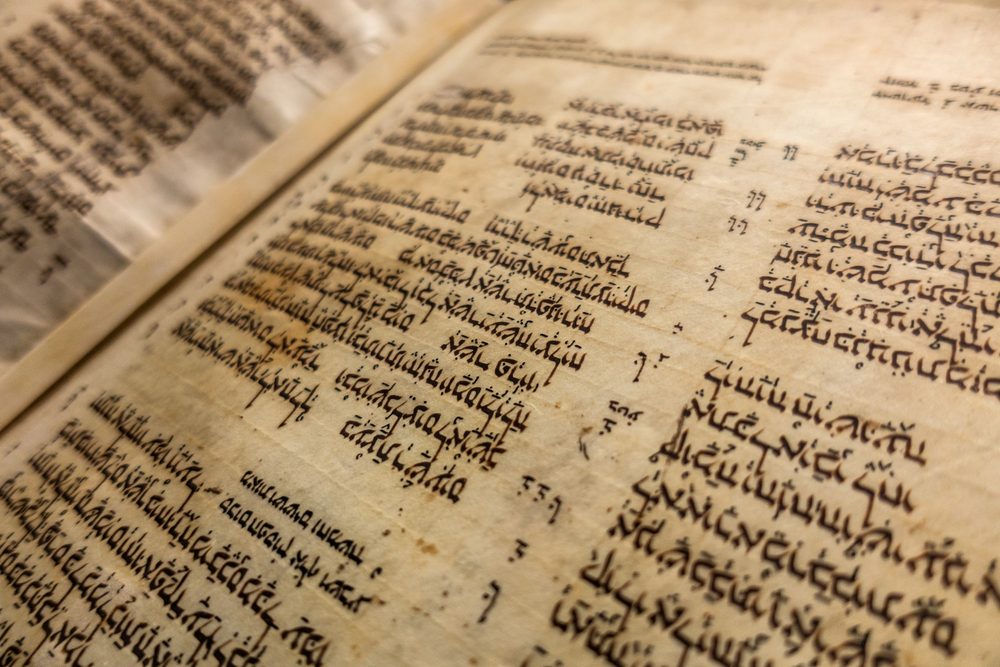Most of the world’s population now resides in cities. By 2030, the population of the cities around the world is expected to grow from 3.3 billion to 5 billion people. In Israel, approximately 6 million residents live in urban communities.
Because of resource constraints, it may become difficult to provide all the services to city residents in the future. In order to continue to serve and improve the standards of living of the growing population, smart cities need to be developed. A Smart City strives for optimal and sustainable utilization of all resources while maintaining a proper balance between social, environmental, and economic costs. In the Smart City, information and communication technologies are used to the maximum to improve the functioning, management, and control of a variety of systems and services, with an emphasis on saving energy, water, land, and other natural resources.
There is still no precise, uniform, and binding international definition for a Smart City. What are the specific parameters that characterize a Smart City, and what is the relative relevance of each parameter to the subject? Which parameters are quantitatively measurable and which are not? The distinction between parameters considered as policy tools and those considered as outcome measures is not always clear.
The key categories for defining Smart Cities have to include energy, environment, water and wastewater, transportation and transport, information and communication systems, quality of life, governance, economics, human resources, housing and land use, home security, and emergency preparedness. Of course, the degree of the City’s readiness in the event of a collapse of the urban systems should also be taken into account, whether such crises may arise from a security situation or natural disasters.
The Israeli Ministry of Energy has begun to address the subject of Smart Cities after realizing that the contribution of energy efficiency alone, without a broader conceptual framework, is quite limited. To manage and promote the issue in Israel, the Smart Cities Administration, initiated by the Ministry of Energy, was established in 2000. The Administration included a representative from each government ministry, and in each of the ministries – a team to be working on the issue. The Administration was to determine where to invest resources and which projects would be promoted. However, after about two years, the Ministry of Energy decided to shut down the Administration, without having the opportunity to implement the results of its work in this important and promising field.
There are many benefits, in terms of national advantage, in promoting Smart Cities: creating competition, promoting the business sector, improving the standard of living, proper utilization of resources, and so on. There are examples of Smart Cities around the world, and much can be learned from their experience and achievements. Israel is characterized by unique conditions, which include an educated population, widespread use of information systems, and cities that are not very large. However, Israel also faces complex challenges, such as a severe land shortage, a problematic security situation, and over-concentration.
Most of the Forum participants agree that in today’s state of knowledge and technology, every city should be a Smart City. There is almost no activity in the city that does not consume energy. Energy production and energy consumption are wasteful processes, and today’s prevailing perception around the world is that the issue of energy in the city can be addressed more efficiently.
Today, most of the cities manage each aspect of activity separately (culture, economics, energy, and so on). However, the meaning of moving to Smart City management is actually moving to integrative management. In the Smart City, all the elements influence each other, including energy, which is interrelated with all the other aspects of the city.
Is the City capable of producing 100% of the energy consumed? Is it possible to produce 100% of the energy using renewable sources? Some cities in the world are moving in this direction. Therefore, it is first necessary to bring energy production closer to where it is consumed. In Israel, we are already there in terms of distributed energy – solar roofs, windmills, and private producers. Many cities around the world are taking steps in that direction, usually not in a sweeping manner, but as projects, new neighborhoods, and industrial zones. So, if 100% of renewable energy can be reached, it can certainly be achieved through the correct fuel mix. Energy management to be done within the city will be much more efficient than the current central/national method.
Recommendations:
- Integrative management – A thinking team should be established to process a holistic thought methodology, which will serve to develop the Smart City. A right solution is addressing the Smart City issue through an integrated team, and a suitable action methodology that will lead to integrative work should be defined.
- Global experience alongside local characteristics – There is much to be learned from the experience gained globally in the field of Smart Cities, and well as to consider the unique characteristics of cities in Israel, such as drastic demographic changes.
- Examining implementation through pilots – In the first stage, it is suggested to implement the Smart City model on a small scale. This experience will constitute the pilot. It might be advantageous to start with a smart university campus, as part of an “action research,” or with a small town that is ready to commit to the subject. On the other hand, some experts claim that around the world the Smart City concept has been implemented directly in large cities, because the professional capabilities and financial means exist only in the big cities.
- Examination of implementation in non-urban areas – It is essential to examine the reference to the Smart City terminology and the methodologies behind it in the context of various localities, such as satellite cities, regional councils, rural settlements, etc.
- Decentralization of the electricity sector – Regulation in the electricity sector that supports decentralization is required. The Ministry of Energy started the reform and removed the management of the system from the Electricity Company, but only regarding the transmission grid; management of the distribution network remained in the hands of the Electricity Company, which is the one that ultimately controls the end consumer. For example, a home solar producer and all renewable energy producers should first be allowed to consume their energy locally, and even store it, if means of storage are available, and only then sell the surplus back to the grid. This would allow independence of buildings and can also allow different players to become active actors in stabilizing the general frequency of the grid and additional benefits.












